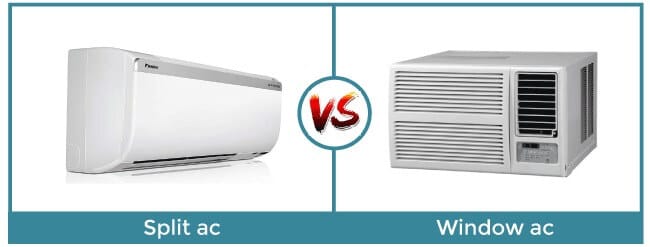Air Conditioner Ace: Your Easy Guide to Finding the Perfect Cool Companion!

Air conditioning systems have evolved into a fundamental aspect of homes worldwide, transitioning from a luxury to a necessity as summer temperatures rise. Choosing the ideal air conditioner to suit your needs can be a nuanced task despite the apparent ease of deciding to invest in one. With the plethora of options available, navigating through the features and specifications becomes imperative for ensuring optimal comfort and efficiency.
The Ultimate Air Conditioner Buying Guide

Air conditioning units come in various designs, from standard window and split ACs to specialized cassette and portable options. Beyond design, considerations like running costs, maintenance convenience, and smart features are crucial. To make this decision easier, we've crafted a user-friendly guide covering all the essentials. Explore further to gain insights that will help you find the ideal AC for your needs.
Explore Air Conditioner: Window vs. Split

When deliberating over which air conditioning system to invest in, the first crucial choice often centers on whether to opt for a window or Split AC unit. Window ACs, widely favored for their ease of installation and maintenance, seamlessly slot into most standard windows. However, their installation may necessitate significant alterations to the window frame and even the doors to ensure proper support. Additionally, due to their substantial weight, Window ACs may require additional reinforcement. Despite their potential for generating noise during operation, their simpler and sturdier design typically translates to hassle-free maintenance and extended durability over many years.
In contrast, split ACs derive their name from their configuration, which comprises distinct indoor and outdoor units. The indoor unit contains a fan and heat exchanger, responsible for recirculating and cooling the air within the room, while the outdoor unit houses the compressor and radiator, facilitating the cooling process. Although split ACs are generally lauded for their quieter indoor operation and enhanced efficiency, their installation and maintenance can pose challenges. The laying of insulated copper pipes between the indoor and outdoor units is a crucial aspect of installation, requiring precision and expertise. Additionally, these pipes are susceptible to wear and tear over time, potentially leading to leaks. However, with diligent maintenance practices, a split AC has the potential to offer reliable cooling solutions for a lifetime.
In summary, the choice between a window and split AC hinges on various factors, including room layout, accessibility to windows, and personal preferences. While window ACs excel in simplicity and robustness, split ACs offer superior efficiency and quieter operation. By carefully evaluating these factors and considering long-term maintenance implications, consumers can make an informed decision to ensure optimal comfort and longevity of their chosen air conditioning system.
Also Read: demo#
Deciphering Air Conditioner: Cooling Capacities

Air conditioners' cooling capacities, measured in tons, indicate the area they can effectively cool. For instance, a 1-ton AC can efficiently cool spaces up to approximately 130 square feet, while a 1.5-ton AC extends this range to around 180 square feet. These capacities are popular choices for both residential and office settings due to their effectiveness in maintaining comfortable indoor temperatures. However, it's crucial to assess your space accurately before purchasing an AC to ensure you select the appropriate capacity.
Choosing an AC with the right capacity is essential for optimal performance and energy efficiency. An undersized unit will struggle to cool your space adequately, leading to discomfort and potentially overworking the system, which can result in premature wear and tear. Conversely, selecting an oversized unit not only wastes energy but may also create an uneven cooling distribution throughout the area, leading to hot and cold spots. Therefore, it's vital to consider factors such as room size, insulation, and local climate when determining the appropriate cooling capacity for your needs.
Consider Running Costs: Beyond Purchase Prices

When contemplating the purchase of an air conditioner, it's imperative to delve beyond the initial price tag and consider the comprehensive cost of ownership. Typically, ACs come with a 10-year warranty on the motor, indicating their longevity with proper maintenance. With an expected lifespan of around 15 years, these appliances represent a substantial investment over the long term. Given their notable power consumption, ACs significantly contribute to monthly electricity bills. Thus, it's crucial to factor in the running costs when evaluating different models. To accurately estimate the total cost of ownership, one must assess the annual energy consumption based on daily usage hours and multiply it by the expected lifespan and the local electricity rate.
Choosing an energy-efficient AC model can be financially prudent despite the higher initial investment. Higher-rated units, such as 4-star or 5-star models, may come with a premium price tag upfront. However, their reduced energy consumption can translate into substantial savings over the AC's lifespan. By investing in an energy-efficient AC, consumers can not only minimize their environmental footprint but also enjoy long-term cost savings through lower electricity bills. Therefore, prioritizing energy efficiency when purchasing an AC can lead to both financial and environmental benefits in the long run.
Also Read: demo#
Smart Features: Enhancing Your AC Experience

Incorporating smart features into an air conditioner may not be essential, but their presence can significantly enhance the functionality and convenience of your cooling system, particularly in modern households. These advanced features empower users to control their AC units remotely, often via virtual assistants like Alexa or Google Assistant. Beyond remote control capabilities, smart ACs offer valuable insights into energy consumption patterns, usage statistics, and maintenance schedules. This data not only helps users optimize their cooling efficiency but also enables them to make informed decisions about their energy usage, ultimately leading to potential cost savings in the long run. While the initial investment in a smart AC may be higher compared to traditional models, the added convenience and energy-saving benefits often justify the expense.
Choosing the right AC for your home or office space is a decision that requires careful consideration to ensure long-term satisfaction and efficiency. By investing time upfront to evaluate your specific cooling needs and preferences, you can avoid the frustration and inconvenience of selecting an ill-suited model. Additionally, thorough research and comparison shopping across various retailers allow you to explore a wide range of options and find the best deal that aligns with your budget and requirements. Ultimately, selecting an AC with smart features not only enhances your comfort but also empowers you to take control of your energy consumption and optimize your cooling experience for maximum efficiency and savings over time.
Related Posts
7 Air Conditioner Maintenance Tips for Peak Efficiency
-
Posted by
Vardhman


8 thoughts on “Air Conditioner Ace: Your Easy Guide to Finding the Perfect Cool Companion!”
Comments are closed.